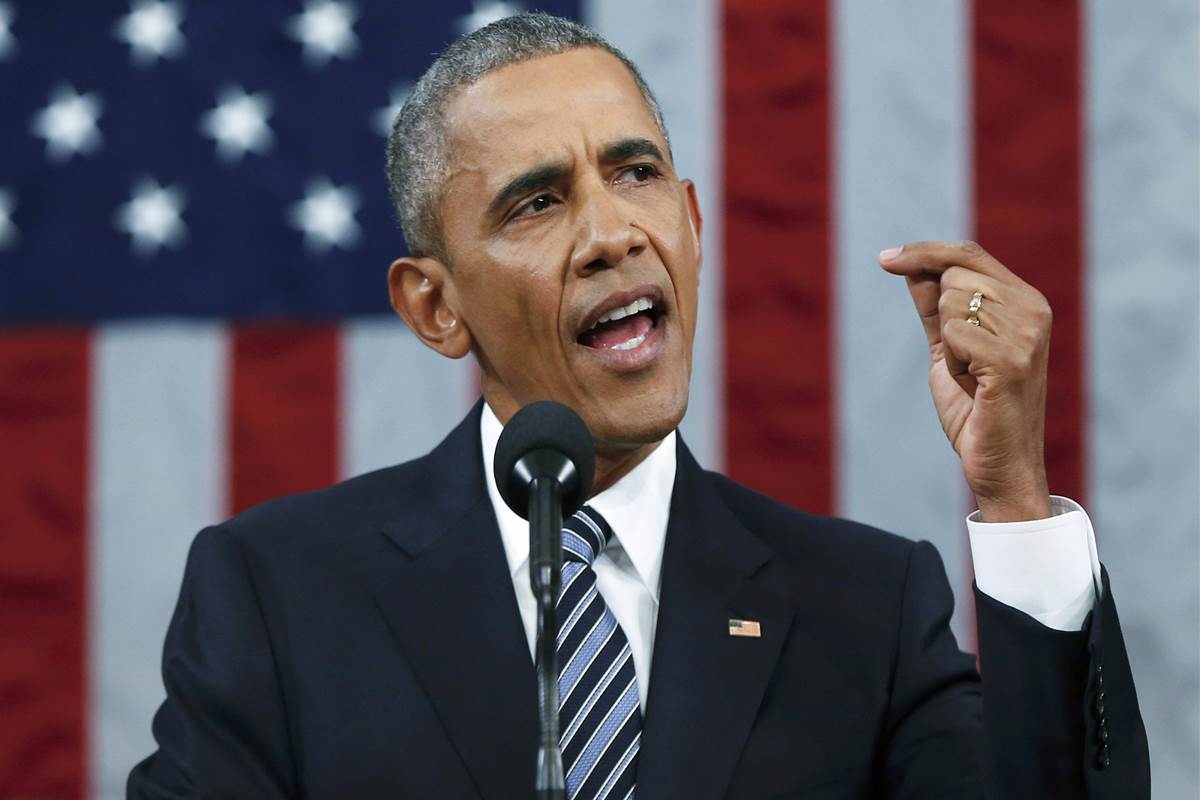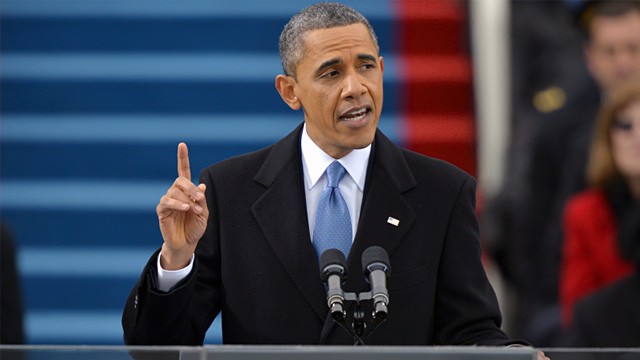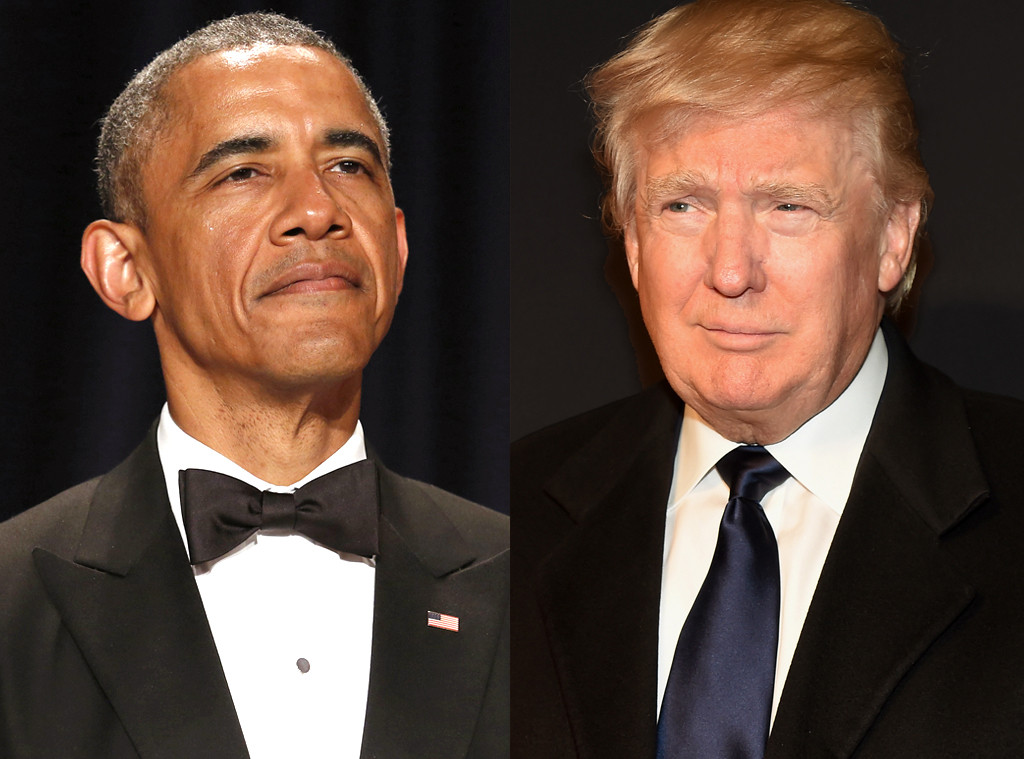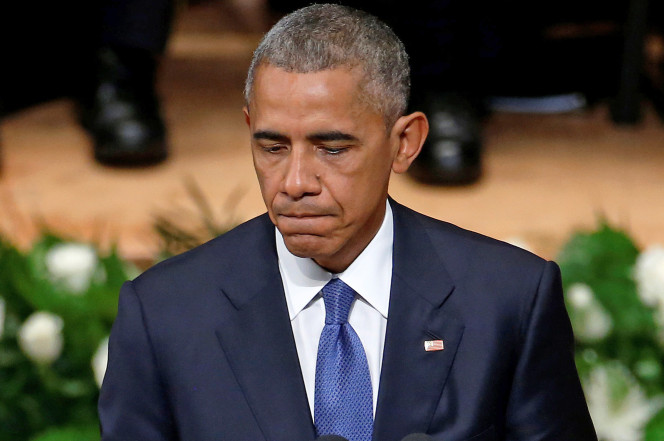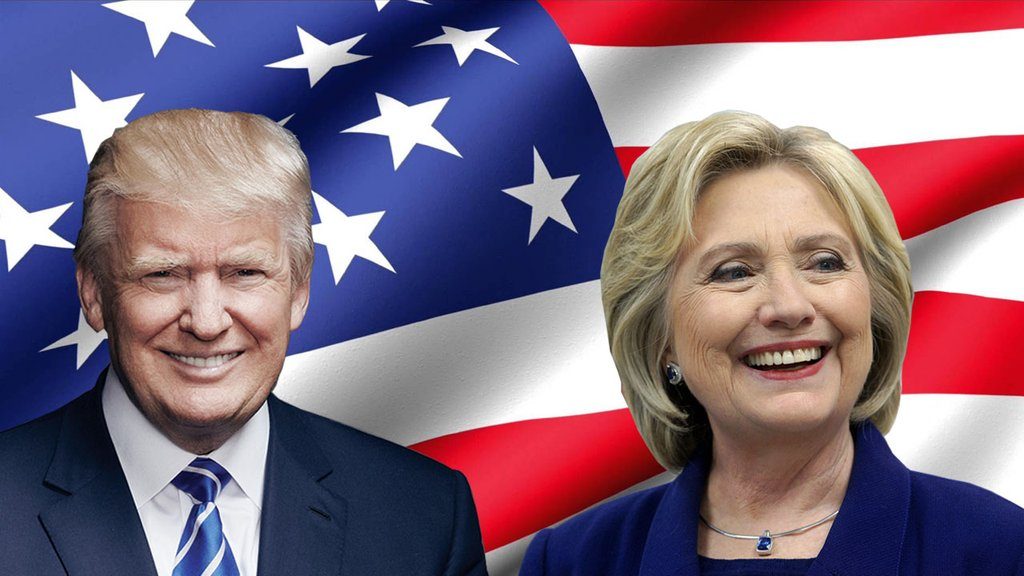By Anthony Zurcher
It’s almost time to close the book on Barack Obama’s eight years as president. Before he relocates to Washington’s posh Kalorama neighbourhood, however, here’s a take on what he tried to do – and how well he did it.
Although there are letter grades attached to each section, these assessments are not a reflection of the wisdom of his actions, only in how well he was able to advance his agenda over the course of his presidency.
While a liberal might give his environmental policy high marks, a conservative would likely flunk him. What can’t be argued, however, is that he accomplished a considerable amount during his eight years.
Going unmeasured are a number of Mr Obama’s intangible or indirect accomplishments.
While the White House sported rainbow-colouring the night after gay marriage became legal nationwide, that was the result of a Supreme Court decision not presidential action. And while Mr Obama often spoke movingly about race relations in the US, particularly after the shooting at a black church in South Carolina, there was little in the way of policy elements accompanying his words.
Mr Obama does have an ample record to judge, however. Here’s a look at eight key areas – along with consideration of their “Trump-ability” – how easy it will be for incoming president Donald Trump to undo what Mr Obama has accomplished.
Healthcare

Comprehensive healthcare reform had been the Democratic Party’s holy grail for decades, always seemingly just out of reach. Under Mr Obama, they finally claimed the prize.
Due to an electoral setback in the Senate before the bill’s final passage, however, the massive piece of legislation was a half-baked cake, making implementation a challenge. The federal healthcare insurance marketplace website, essentially unusable for months after launch, was a very visible, politically devastating mistake.
To the surprise of Democrats, many Republican-controlled states opted not to expand Medicaid healthcare coverage for the poor. More recently, insurance premiums for exchange-based policies will increase markedly in some US states – which will be a financial blow to less affluent Americans not covered by government subsidies.
Much of the law operated as intended, however. The percentage of Americans without insurance dropped from 15.7% in 2011 to to 9.1% in 2015. More than 8.8 million Americans have signed up for coverage through the federal exchange in the current enrolment period – a record high. Insurers can’t deny individuals coverage for their pre-existing medical conditions, and there are no lifetime dollar caps on coverage.
Despite its shortcomings, passage of the Affordable Care Act, in the words of Vice-President Joe Biden, was a big expletive-ing deal.
Presidential grade: B+
Trump-ability: Republicans have been trying to repeal the Affordable Care Act from the moment Mr Obama signed it into law. Mr Trump regularly condemned the programme as a failure. Now, Republicans are setting the wheels in motion to tear up the reforms “root and branch”, in Senate Majority Leader Mitch McConnell’s words.
Republicans will be able to shred the programme even with their slim majority in the Senate thanks to presidential authority and legislative manoeuvres.
Enacting a replacement plan, however, will be more difficult. At the moment, they seem determined to jump off the repeal bridge without figuring out exactly where they will land, but Mr Trump has cautioned his congressional colleagues to be careful with how they go about the task.
Environment

Mr Obama’s administration helped negotiate the Paris climate agreement, in which the US joined 185 countries in pledging to cut greenhouse gas emissions. It enacted a host of new regulations governing pollution from coal-fired power plants and limiting coal mining and oil and gas drilling both on federal lands and in coastal waters. Mr Obama also used his executive authority to designate 548 million acres of territory as protected habitat – more than any prior president.
The past eight years weren’t without missed opportunities, however. Early in his administration, when Democrats had large majorities in Congress, the House of Representatives passed a stringent cap-and-trade programme for controlling carbon emissions. The Senate focused on financial and healthcare reform first, however, and the Democratic majority was gone before they could take action.
That may be as close as Democrats come to any sort of comprehensive environmental legislation for a great many years.
Presidential grade: A-
Trump-ability: US participation in the Paris accord is still uncertain given that the president-elect promised to abandon it. While the withdrawal procedure is supposed to take four years, Mr Trump’s team is reportedly searching for ways to speed up the process.
Other Obama-era executive accomplishments, however, will be more difficult to roll back. Proposed regulatory changes will require an extended approval process and are sure to face a flurry of lawsuits from environmental groups. Congress could speed things up, but Democrats in the Senate have enough votes to block their efforts if they stick together.
Trade

Mr Obama made completion of two major trade agreements – the Trans-Pacific Partnership and the Transatlantic Trade and Investment Partnership – the cornerstone of his second term in office.
The TPP is destined for the dustbin without even consideration by the US Congress, thanks to a coalition of opposition from Democratic left and the economic nationalists who are sweeping to power with Mr Trump.
The TTIP, which is still in negotiation and attempts to reduce trade barriers between the US and the EU, is being abandoned by politicians on both sides of the Atlantic.
The Obama administration did successfully implement free trade agreements with Panama, Colombia and South Korea, but they are dwarfed by the size and scope of the now-doomed regional deals.
Presidential grade: D-
Trump-ability: Mr Trump can and will give a death blow to any hopes Mr Obama may have had of cementing a lasting trade legacy through the TPP and TTIP. More than that, the new president is poised to roll back the trade legacies of previous presidents, as he’s pledged to renegotiate the North American Free Trade Agreement – which was concluded under President Bill Clinton – or perhaps even withdraw from the deal entirely.
His promises to enact draconian import tariffs on some foreign goods would also run counter to US commitments to the World Trade Organization, which could undermine the entire foundation of the current global trade regime.
The economy

When Mr Obama took office, the US economy was in freefall. Unemployment had spiked to double digits, housing prices had collapsed and the financial industry teetered on the brink of collapse.
The picture eight years later is one of stability and modest growth, although critics will argue that things could be better (and blue-collar Trump voters in the industrial states seemed to agree).
Policy-wise, Mr Obama pushed through a major stimulus package and financial reform legislation early in his first term. His administration oversaw a support structure that saved General Motors from a bankruptcy that would have devastated the US auto industry.
The Home Affordable Refinance Program, run by the Federal Housing Finance Agency, allowed several million US homeowners to avoid foreclosure and refinance high-interest mortgages.
The president negotiated an agreement that rolled back many of the George W Bush era tax cuts in exchange for across-the-board spending freezes. He frequently called for a raise in the federal minimum wage, but he was unable to generate any support for such actions in the Republican-controlled Congress.
Although the stock market is reaching new highs, 2015 household income is still below what it was in 2007. Considering where his presidency started, however, the current state of economic health is perhaps the president’s most noteworthy legacy.
Presidential grade: A
Trump-ability: Republicans cutting taxes when they hold power is as certain as the sun rising in the east. Tax-reform, which will likely include a return to Bush-era rates along with even more substantive changes, appear all but certain for passage. Mr Obama’s financial reform legislation also could be poised for weakening, as it was frequently the target of Mr Trump’s anti-regulation ire.
Although conservatives liked to criticise Mr Obama’s efforts to bolster US companies as “picking winners and losers”, early evidence (Carrier, Ford Motors, etc) indicates that’s one tradition Mr Trump appears likely to continue, albeit with a sharper edge for businesses that don’t comply to his wishes.
Foreign relations

Mr Obama will leave the White House with two prominent feathers in his foreign policy cap – the Iran nuclear deal and normalised relations with Cuba. Say what you will about the merits of the accomplishments (and many have), they represent a notable thawing in relations between the US and two long-time antagonists.
He also oversaw the drawdown of US forces in Iraq and Afghanistan – fulfilling a key campaign promise.
Elsewhere, however, the president’s international policy has been characterised by strained relations and festering problems. His planned “reset” of US-Russian relations upon taking office was followed by the nation’s Ukrainian intervention and allegations of meddling in the 2016 US presidential election.
The Arab Spring uprisings that began in 2010 spread unrest throughout the Middle East, culminating in a Syrian Civil War that facilitated the rise of the so-called Islamic State and a devastating refugee crisis that has roiled European politics.
North Korea continues to develop its nuclear weapons programme seemingly undeterred, and Mr Obama’s plans for an “Asian pivot” in US foreign policy have done little to keep Chinese regional ambitions in check.
Responsibility for this global unrest can’t all be laid at Mr Obama’s feet, of course, but it’s a mark on his permanent record nonetheless.
Presidential grade: C+
Trump-ability: Mr Trump has criticised the Iranian nuclear deal, although unlike some other Republicans he hasn’t vowed to abandon it entirely. He may find renegotiating the multi-party agreement more difficult than he might think. As for Cuba, he has the executive authority to roll back all of Mr Obama’s diplomatic overtures to the communist island, including relaxed sanctions and travel restrictions – although he’s kept his options open so far.
The president-elect also seems more likely to favour closer relations to Israel and a renewed attempt at improving relations with Russia (a re-reset). In Syria, he has criticised Mr Obama’s actions but hasn’t advocated a coherent counter-policy, so there’s no telling how – or if – he’ll change course.
One thing is for certain, however. At least rhetorically the Trump administration will be a marked departure from Mr Obama’s internationalist foreign policy, which leaned heavily on co-operation and co-ordination with allies.
Crime

The long-term trend of declining crime rates continued over the past eight years, although a number of large cities have seen a recent uptick in their murder rates. While public safety was a 2016 campaign issue, much of Mr Obama’s efforts while president were directed at criminal justice reform.
In 2010 he signed a law that brought the mandatory minimum prison time for crack cocaine possession – which disproportionately involves black drug offenders – more in line with powder cocaine sentences.
In January 2016, Mr Obama took a series of executive actions to limit the use of solitary confinement in federal prisons and provide greater treatment for inmates with mental health issues. He has also used his presidential power to commute the sentences of more than 1,000 non-violent drug offenders and supported a Justice Department policy that resulted in the early release of about 6,000 individuals.
Although Mr Obama has backed bipartisan sentencing reform legislation in Congress, the 2016 presidential election – and Mr Trump’s tough-on-crime rhetoric – has been attributed with frustrating those efforts.
Gun control wasn’t a top priority for Mr Obama when he took office, but in the early months of his second term – after the 2012 mass shooting of schoolchildren in Newtown, Connecticut – Mr Obama made a strong push for greater restrictions on some types of military-style semi-automatic rifles and more thorough background checks for firearm purchases.
Those efforts ran head-on into the National Rifle Association’s formidable lobbying power, however, and aside from a few executive actions, no new policies were enacted. In 2015, Mr Obama told the BBC that his failure in this area was his greatest frustration as president.
Presidential grade: B-
Trump-ability: Given that Mr Trump regularly painted a bleak picture of crime levels in the US, lamented that law enforcement was too constrained by “political correctness” and opined that prison inmates were being treated too well, it’s safe to say he will pursue a decidedly different course on public safety than Mr Obama.
Sentencing reform – in limbo for the past year – will be an exceedingly low priority for Republicans in Congress now, and Mr Obama’s gun-control executive actions are likely to face the chopping block.
Immigration

There was a point, shortly after Mr Obama’s re-election in 2012, where comprehensive immigration reform seemed inevitable.
The president and his fellow Democrats were in favour, and rattled Republicans saw granting permanent residency to some undocumented workers and streamlining the US immigration system as a means to curry favour with the growing bloc of Hispanic voters.
A grass-roots revolt within the Republican Party derailed those plans, prompting Mr Obama to take a series of executive actions providing normalised status to undocumented immigrants who entered the US as children and the immigrant families of US citizens and permanent residents. (The latter policy has since been suspended during a protracted legal battle over its constitutionality.)
While these efforts attracted widespread praise from pro-immigration activists and Hispanic groups, the Obama administration’s policy of increasing removal of other undocumented immigrants has prompted some to call him the “deporter in chief”.
From 2009 to 2015, the Obama administration deported more than 2.5 million people – most of whom had been convicted of some form of criminal offence or were recent arrivals.
Presidential grade: B
Trump-ability: Mr Trump may very well drop the US defence of the portion of Mr Obama’s immigration action that’s currently under legal challenge. He could also unilaterally resume deportation of others given normalised status by Mr Obama’s executive efforts, although that will be more controversial.
The president-elect has pledged to deport more than three million undocumented immigrants currently living in the US – including visitors who have overstayed their visas – although given Mr Obama’s track record it may be a difference of extent, not substance.
At one point, Mr Trump was pledging to remove everyone not lawfully in the US – more than 11 million by most estimates – which would be a marked departure not just from Mr Obama’s policies but those of every modern US president.
Party power

Whatever his other successes during his time in office, Mr Obama’s presidency was a beating for the Democratic Party.
In 2009, when Mr Obama was swept to power, Democrats had large majorities in the US Congress and control of 29 of 50 governorships. Since then, he has seen his party’s power steadily erode. The House of Representatives has been in Republican hands since 2010; the Senate since 2014. Democrats control the governor’s mansion in only 16 states.
The situation is even more dire in state legislatures – the proving grounds for young politicians with national ambitions. Republicans hold sway in 32 legislatures, while Democrats have majorities in only 12 (the rest are divided).
If the party doesn’t make inroads in places like Pennsylvania, Ohio, Michigan, Florida and Wisconsin by 2020, those legislatures will draw congressional district maps that make recapturing the House of Representatives a tall task for Democrats for another decade.
Mr Obama’s political constituency – young voters and minorities – proved enough to win him the presidency twice, but it was a fragile coalition that could not be counted on in mid-term congressional and legislative elections or, for that matter, by Hillary Clinton last year.
While Mr Obama can boast considerable accomplishments over his eight years in office, if his party can’t regain its footing after a string of devastating electoral setbacks, he won’t have any legacy worth writing about before too long.
Presidential grade: F
Trump-ability: Barring a major political realignment in the liberal fortress of California, things can’t get much worse for Democrats at the state level. In Congress, however, Mr Trump has a decent shot at expanding the Republican Senate majority in 2018, given that Democrats have to defend 10 seats in states that Mr Trump won last year.
There’s always the chance that Republicans could overreach in their efforts to enact their agenda. An economic decline or foreign policy fiasco could tank Mr Trump’s approval rating and make winners of even unlikely Democrats.
The durability of Mr Trump’s own political coalition of disaffected working-class whites, evangelicals and other traditional Republican voters is still an open question as well. While Republicans may feel the future belongs to them, when Mr Trump’s time in the Oval Office comes to an end, there’s no telling what kind of grades will his legacy receive.
